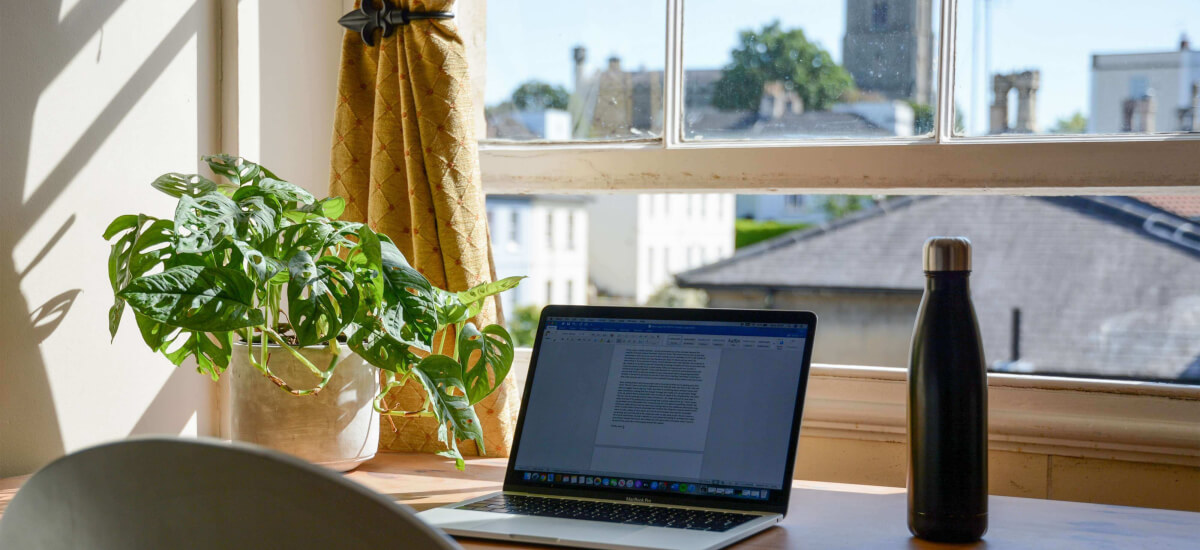Revolut Business Invoices Review (UK - 2024)
If you already use Revolut for your company you may be interested in using Revolut Business invoices to get paid conveniently to your Revolut account by...

If you’re a sole trader¹, or run certain business entity types, you may be able to deduct allowable expenses - essential costs involved in running your company - for tax purposes.
Depending on your situation, you may need to add up all allowable expenses one by one - or you may be able to turn to the HMRC simplified expense method.
| ⚠️ Simplified expenses aren't the right approach for everyone, and they're not an option for all companies. |
|---|
This guide walks through how self-employed simplified expenses work, and what you can claim for things like vehicles, home office expenses or if you live at your business premises.
| 📝 Table of contents: |
|---|
Under HMRC rules, you may be able to deduct certain allowable expenses from your revenue when you calculate your taxable profit.
Allowable expenses are basically the costs which arise from running your business, which may be one off payments, or regular costs. Some examples of allowable expenses include:
To work out how much your business can claim in allowable expenses using normal accounting methods you may have to add up each expense one by one.
However, this may cause a huge amount of administration, depending on your business type. HMRC offers the simplified expenses method² as an alternative to help some self-employed people and small business owners to save time on their accounting process.
| 🕰 You can also save time managing your business finances using Wise multi-currency account. Get to know more. |
|---|
Simplified expenses means using flat rate expenses for your allowable expense claims, instead of needing to add up every business payment you’ve made over the year.
That can be far easier to manage from an admin point of view - although you’ll still need to keep accurate records and receipts in case you’re asked to provide evidence of payments.
We’ll look at a few examples in more detail in a moment - but one common use case is for people who work from home. Under normal allowable expense rules, you’d be entitled to claim a portion of the costs of your home office as an expense - but you’ll need to accurately split out and calculate what you’re paying for your office as opposed to the part of the house your family lives in.
Under the simplified expense method, if you have a home office, you can calculate how many hours per month you worked from home and then claim a flat rate of expenses based on government allowances. This saves time as you don’t have to come up with the exact cost of your household and utility bills that can be attributed to business expenses.
Using simplified expenses may save you and your business time and money - and HMRC offers a really handy calculator tool³ to help you decide if they’re the right approach for you, too.
Wise Business offers a multi-currency account you can use to hold and exchange 50+ currencies, send payments to 80+ countries, and get paid like a local from 30+ countries.
That makes it easier to connect with international customers, pay staff and contractors based abroad, and cover supplier invoices in foreign currencies.
All Wise currency conversion uses the mid-market exchange rate with low, transparent fees, so you can send fast, secure international payments for less.
Simplified expenses can be used by:
That means that HMRC simplified expenses are well worth looking at if you’re self employed - but if you run a limited company in the UK you won’t be able to consider this approach.
Even if you’re entitled under HMRC rules to use simplified expenses, you can’t use this approach to every single type of allowable expense. Simplified expenses are mainly used for:
We’ll look at how each of these different expense types work under the simplified expenses method, next.

It can be challenging to calculate business expenses when working from home. Usually what you’d need to do is work out exactly what portion of things like your mortgage interest, utilities, internet or council tax, can be attributed to your business⁴.
For things like utilities this could be based on how much of the house you use for work purposes, but it can be tricker to calculate things like how much of your internet or phone bill relates to running your company.
The simplified method helps self-employed people to calculate and divide the expenses between home and work affairs⁵. If you work from home 25 hours a month or more you can use this approach.
Here are the HMRC simplified expenses working from home flat rates:
| Hours of business use per month | Flat rate per month |
|---|---|
| 25 - 50 | 10 GBP |
| 51 - 100 | 18 GBP |
| 101+ | 26 GBP |
So if you work from home for 30 hours one month, and then 60 hours the next, you’d add up:
| 💰 10 GBP + 18 GBP = 28 GBP in home office allowable expenses over that time. |
|---|
Under normal accounting rules you may be able to claim allowable expenses for some travel, mileage and vehicle costs⁶. However, this becomes trickier if you use the same vehicle for both work and private travel. In this case the simplified expenses mileage method⁷ may help.
Under the mileage flat rate expense approach you’ll claim a fixed rate per mile, which is intended to represent the average cost of both the fuel and the costs of running your vehicle. Eligible vehicles include:
| ⚠️ Once you start using the simplified expense method for a given vehicle you must stick with this accounting approach until you stop using that vehicle for work. |
|---|
Here are the HMRC simplified expenses mileage rates:
| Vehicle type | Flat rate per mile |
|---|---|
| Cars and goods vehicles - up to 10,000 miles | 0.45 GBP |
| Cars and goods vehicles - over 10,000 miles | 0.25 GBP |
| Motorcycles | 0.24 GBP |
So if you’ve done 10,000 miles over the year the calculation would be:
| 💰 10,000 x 0.45 GBP = 4,500 GBP simplified mileage allowable expense |
|---|
If you live at your business premises - for example by living in and running a bed and breakfast or guest house - you may also use the simplified expense method to calculate allowable expenses for this⁸.
This is distinct from having an office in your family home in that the property itself is the core of the business, rather than being a home first with an office as a small portion of it.
When you live in your business premises, you’ll need to calculate the full cost of running the premises, and then deduct a flat rate to account for the portion of the property you use for personal use - the opposite calculation to that used for working from home.
Calculate the flat rate deduction based on the number of people living in the property, and then deduct this from the full cost of running the premises when you calculate your taxable profit.
Here’s the simplified expenses - living at your business premises flat rates:
| Number of people living in the premises | Monthly flat rate |
|---|---|
| 1 | 350 GBP |
| 2 | 500 GBP |
| 3 | 650 GBP |
If you’re living alone as a live-in manager of a guesthouse, for example, over the course of a tax year you’d be able to claim:
| 💰 12 months x 350 GBP = 4,200 GB |
|---|
Calculate the full cost of running the guest house for the year, and deduct 4,200 GBP to reflect the cost of the property used for personal use.
If you’re self-employed or a small business owner in the UK, a Wise Business account can make it easier to run your company and manage your expenses.
Open your account for a one time low fee, to hold and exchange multiple currencies, and apply for expense cards for you and your team.
Exchange currencies within the account, spend on your cards, or send payments to international suppliers, contractors and staff, with the mid-market exchange rate and low, transparent fees.
That cuts your costs - and with business friendly perks like batch payments, cloud accounting integrations and instant uploads for expense receipts, you can cut your admin time too.
Open a Wise Business account today, to make it easier to manage your company expenses - so you have more time to focus on your colleagues and customers.
Get started with Wise Business
Simplified expenses aren’t the right approach for everyone. But if you’re a sole proprietor or run an eligible business entity type, they’re worth looking at as a way of cutting down admin time, and possibly saving money too.
Sources used for this article:
Sources checked on 19-09-2022
*Please see terms of use and product availability for your region or visit Wise fees and pricing for the most up to date pricing and fee information.
This publication is provided for general information purposes and does not constitute legal, tax or other professional advice from Wise Payments Limited or its subsidiaries and its affiliates, and it is not intended as a substitute for obtaining advice from a financial advisor or any other professional.
We make no representations, warranties or guarantees, whether expressed or implied, that the content in the publication is accurate, complete or up to date.

If you already use Revolut for your company you may be interested in using Revolut Business invoices to get paid conveniently to your Revolut account by...

If you have a UK business you’ll need smart and easy ways to pay your team members and comply with your payroll reporting and tax obligations. Using...

Learn how syncing up your favourite accounting software can help to streamline your finances and set you up for success.

Roisin Levine, Wise Platform's Head of Partnerships for the UK and Europe, speaks with Financial IT and explains how banks can leverage our infrastructure.

In today's digital era, having a strong online presence is crucial for any business looking to grow or thrive internationally. Whether you've already expanded...

At EBAday 2024, the Wise Platform team had a strong presence and gained invaluable insights on the evolving cross-border payments landscape.